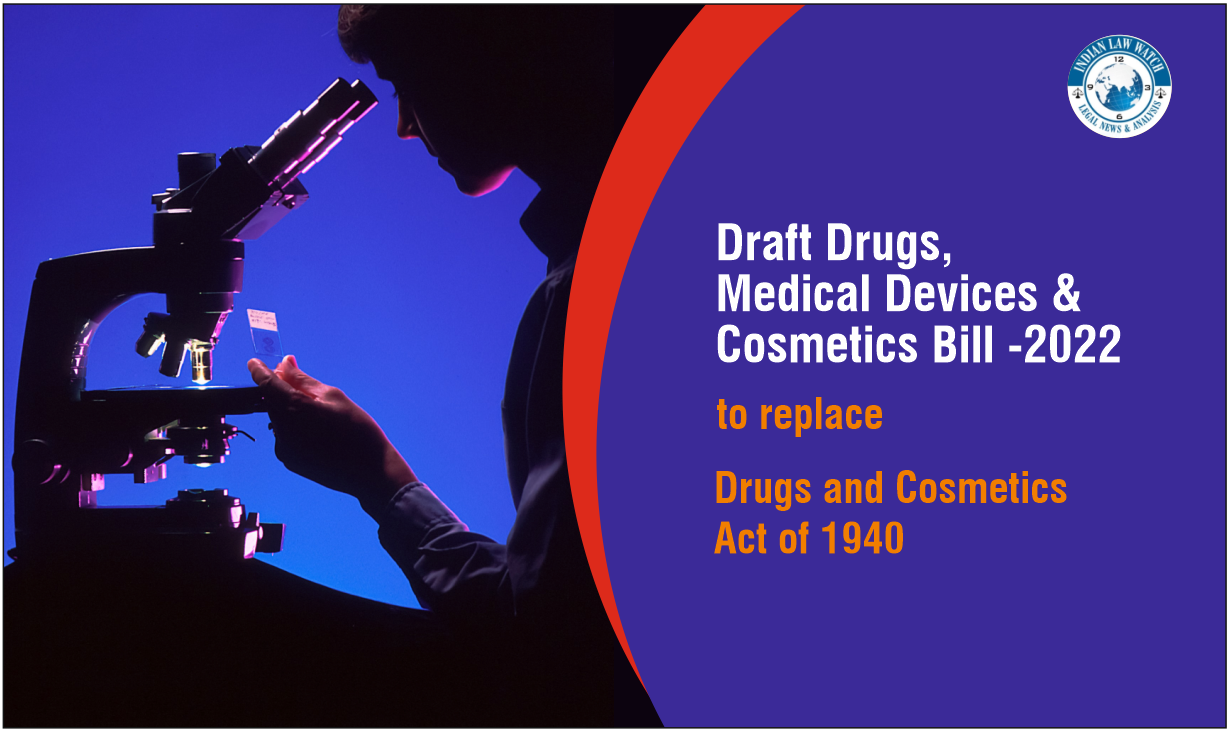

The bill proposes new definitions for clinical trial, over-the-counter drugs, manufacturers, medical devices, new drugs, bioavailability study, investigational new drug and imported spurious drugs, among others.
The health ministry plans to replace the Drugs and Cosmetics Act of 1940 with an updated law laying down strict regulatory guidelines to keep pace with changing needs and technology.
Given the need to have comprehensive legislation, a committee was constituted for framing the drugs, medical devices and cosmetics bill, 2022 which was released on 8 July for stakeholders to give their suggestions.

-
The new Bill seeks to bring in regulation for online pharmacies and medical devices and penalties such as imprisonment and compensation in case of injury or death during clinical trials for drugs.
-
No clinical trial can be carried out without permission, medical management and compensation for injury or death, the draft proposes. “No person shall himself or by any other person on his behalf sell, or stock or exhibit or offer for sale or distribute any drug by online mode (e-pharmacy) except under and in accordance with a licence or permission issued in such manner as may be prescribed,” the draft says.
-
The government has proposed empowering the Drugs Control Officer with prior approval of the controlling authority to enter into any premises related to clinical trial to inspect the facilities, record, data, documents, books and drugs.
-
The Centre has proposed a separate Drugs Technical Advisory Board (DTAB) and Medical Devices Technical Advisory Board (MDTAB) to give suggestions to the government from time to time.
-
The draft proposes to allow the Centre to waive the requirement of conducting clinical investigation for manufacture or import of a new medical device in public interest.
-
The Bill includes a chapter on Ayurveda, Siddha, Sowa-Rigpa, Unani and Homeopathy, and their respective Drug Technical Advisory Boards.
“We are studying the draft and seeking comments from our members. We are disappointed that the aspirations of a separate Act for medical devices have not been addressed and budding entrepreneurs and startups, developers and engineers will still need to grapple with a complex joint law. The medical devices have a huge potential of investment of more than ₹50,000 crore to meet the market of more than ₹1 trillion. Once we study the fine print, we will be in a better position to comment on the efforts of the health ministry in drafting this bill,” said Rajiv Nath, forum coordinator, Association of Indian Medical Device Industry.
Source : Mint





